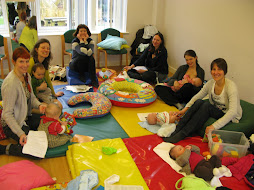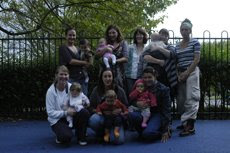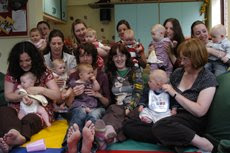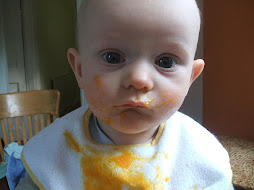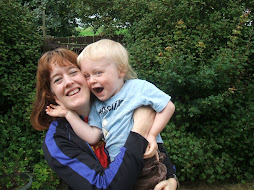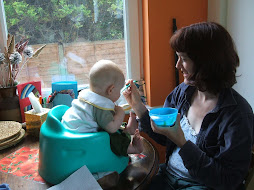In the last eight months there have been three diatribes about mothers in the ‘Family’ section of the Guardian, which I find disheartening and a bit baffling (why alienate your target readership?). They have all come from childless women in their forties. Last summer’s self-congratulatory twaddle from Emma Kennedy portrayed mothers as deluded and insensitive. Then ‘I’m Not a Mother, but I’m Still a Person’ – gentler in tone, but implying no mother was capable of showing interest in anything except motherhood/children. And now Lynch’s demolition job ‘Mothers, stop moaning!’ Between them they assume all mothers are vacuous, ungrateful and self-obsessed.
‘I don’t want to mum-bash’, claims Bibi Lynch. Why then, open your article with two stories about mothers who anyone, even other mums, would find ridiculous…? That of the ‘devastated’ about-to-be-mother of three boys and how tired Victoria Beckham is, despite her undoubted fleet of staff and luxurious lifestyle.
She then slips in a sideswipe at Mumsnet Towers, assuming all women who have procreated, worship at its feet, instead of finding it often cloyingly self-righteous and clique-y, as organisations run by women can tend to be. However, if moaning mothers annoy you, why look at Mumsnet? It’s like saying you hate origami and getting all aerated because Peter from Swanage can’t fold the perfect swan on origami.co.uk.
Lynch claims she knows how horrendous post-natal depression is, or illness as it is technically termed. Depression is depression, yes, but does she know that according to the Royal College of Obstetricians and Gynaecologists (RCOG), more than ten per cent of maternal deaths - that's deaths within one year of giving birth - are caused by suicide? And often particularly grisly suicides at that, the women wanting to punish themselves in the worst way possible for leaving their child motherless.
Mothers are treated as superior citizens, she says. As anyone who has battled with a baby in a busy place will tell you, this is not always the case. People tend to look the other way and tut when a noisy baby and harassed mother cross their path. She was asked to get off a bus for a mother with a pram. Yes, that’s not fair. Perhaps the woman might have been someone like me, who had cried every day since giving birth four months earlier and was in desperate search of a group that recognised I was still a person behind the mother. I had to get two buses to this group with a new pram (the inherited one had collapsed) which I hadn’t, in my agitated state, learned how to deal with. The crowded bus watched as I tried to fold it with one arm, the other holding the baby, before admitting defeat and leaving the bus. Half an hour’s walk later, upset and very late for the group, I phoned my partner on the second bus, and didn’t put the phone away properly. It was stolen. I didn’t make it to the group.
In the majority of cases, depression in new mothers does decrease and of course, they have the immense gift of that baby, but to suggest that they should have no further sadness, anger or boredom in their lives, just because they are mothers, is preposterous. I run a creative support network in Brighton called Mothers Uncovered. The women that participate are bursting with love and gratitude, but they are also struggling to find their way as mothers. And before you say it, they are not pampered middle class brats. They come from all walks of life.
Lynch dwells romantically on how mothers and their offspring belong to each other. This is a wonderful thing, but the very many cases of estrangements within families belies this as a universal truth. Or what about the mothers of murderers, of rapists, or the case of the boy in the news this week who killed his mother with a hammer? Were they glad they were mothers?
‘I will never be loved as you’re loved’, she mourns. Well, let this ‘moaning’ mother tell you: one of the bittersweet truths you come to realise is that your love for your child is greater than they will ever have for you. While your child is still young, it is reciprocated in equal measure. But the child must grow, move away from the nest, fall in love with others, perhaps have a child of their own. If they do, they will feel for that child what you felt for them. There may be a renewed closeness when that point is reached, but the intensity of motherly love is a one-way street.
